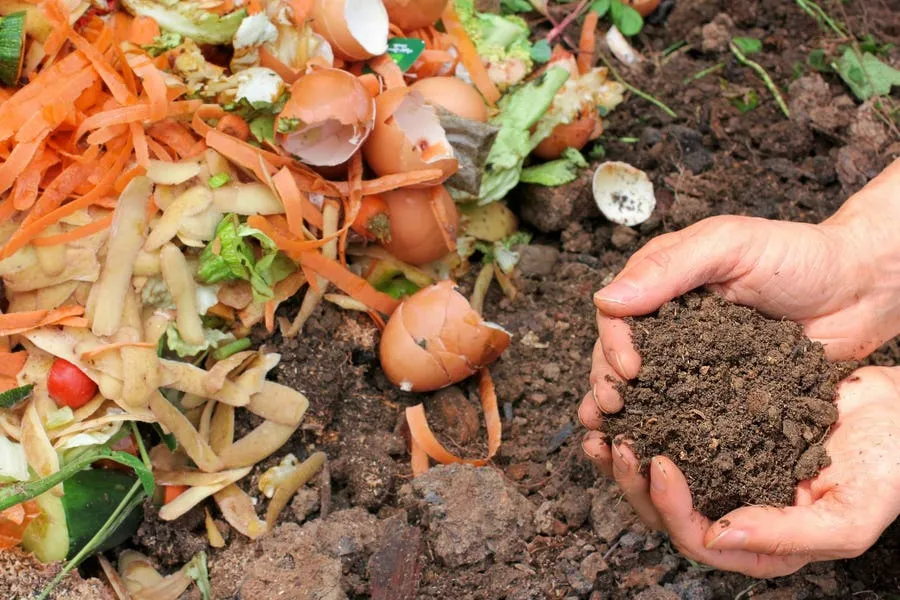Forbes contributors publish independent expert analyses and insights.
When it comes to sustainability, many Americans separate their aluminum cans from their trash without a second thought. But when it comes to food scrap composting - arguably a more impactful climate action than recycling - most households still default to the trash can. Despite mounting evidence of its environmental and economic benefits, curbside composting remains far from mainstream.
According to BioCycle's 2023 residential food waste collection access survey, only 12% of U.S. households have access to municipally-supported composting, which can include curbside collection or drop-off locations. The Sustainable Packaging Coalition estimates that at least 27% of the U.S. population has access to some form of composting when paid subscription services are included. "We have a long way to go," said Nora Goldstein, editor of BioCycle and a decades-long tracker of composting infrastructure in the U.S. "The easy default for jurisdictions is still just to collect all commingled trash, rather than separate organics that can be composted."
According to the EPA, food waste is the single largest category of material sent to landfills and incinerators, where it generates methane, a potent greenhouse gas. Food waste is the source of more than half of landfill greenhouse gas emissions. Composting redirects organic waste from landfills, replenishes nutrients in the soil and reduces dependency on chemical fertilizers. Economic benefits include lower waste hauling fees and job creation, and finished compost is sold or given away as natural soil amendment for residential and commercial use. Soil degradation and poor soil health are causing significant problems worldwide. So why haven't more cities made curbside composting easier, or even mandatory?
California and Vermont are the only two states that currently mandate some form of household curbside composting access; Washington state's law becomes effective in 2030. But even those laws have their limits. Vermont's composting program is mainly drop-off in centralized locations, rather than curbside. In California, many jurisdictions have struggled to comply with the state's 2022 mandate.
Meanwhile, large cities like San Francisco and New York have led the way. New York City recently expanded its curbside composting program citywide and mandated composting compliance effective April 1, 2025, subject to fines. Yet even in jurisdictions where access exists, participation is another story.
"There's a big difference between access and participation," Goldstein said, explaining that it's not just about handing people an organics collection bin. "Successful programs are the ones that invest in ongoing outreach and education and treat it as an essential service, not an optional nice-to-have."
Strategic communications expert Mimi Shah, Principal at Amplify for Change, has seen firsthand what drives - or blocks - household participation in curbside composting.
"A lot of people hesitate to compost for pretty basic reasons," Shah said. "They think they don't have space for it in their kitchen, they worry it'll smell, or they're afraid it'll attract pests. But with a little awareness and education, those usually fade."
Goldstein and Shah both emphasized that curbside composting behavior change follows the familiar Rogers innovation adoption curve, and that convincing innovators and early adopters before the general population is most effective. "You need good policies and consistent messaging that make it feel normal, or even expected, to separate food scraps," Shah said. "Fee structures or fines can help tip the scales. And one of the biggest levers is social influence."
As curbside composting becomes more visible, so do misleading claims and ineffective tools. Some devices sold as electric countertop composters and "compostable" packaging that isn't third-party certified are often more marketing than science. "Greenwashing isn't so much at the municipal level; it's vendors that are taking advantage of growing interest in food scraps and recycling collection," Goldstein said, noting that there is no oversight of vendors' claims.
A comprehensive solution is one that includes smart shopping to reduce food waste to begin with and composting what can't be consumed.
To bring curbside composting into the mainstream, the path is clear: enforceable mandates, consistent education, scalable infrastructure, and smart policies that shift both cost and culture. But perhaps most of all, it takes time and a normalization of the idea that food scraps aren't trash.
"Once folks build the habit," Shah said, "it becomes second nature. And honestly, it starts to feel unnatural to throw food scraps in the trash."
In the end, that cultural shift - where tossing food scraps in the trash feels weird - may be the tipping point curbside composting needs. And that's exactly the kind of weird the planet needs.
